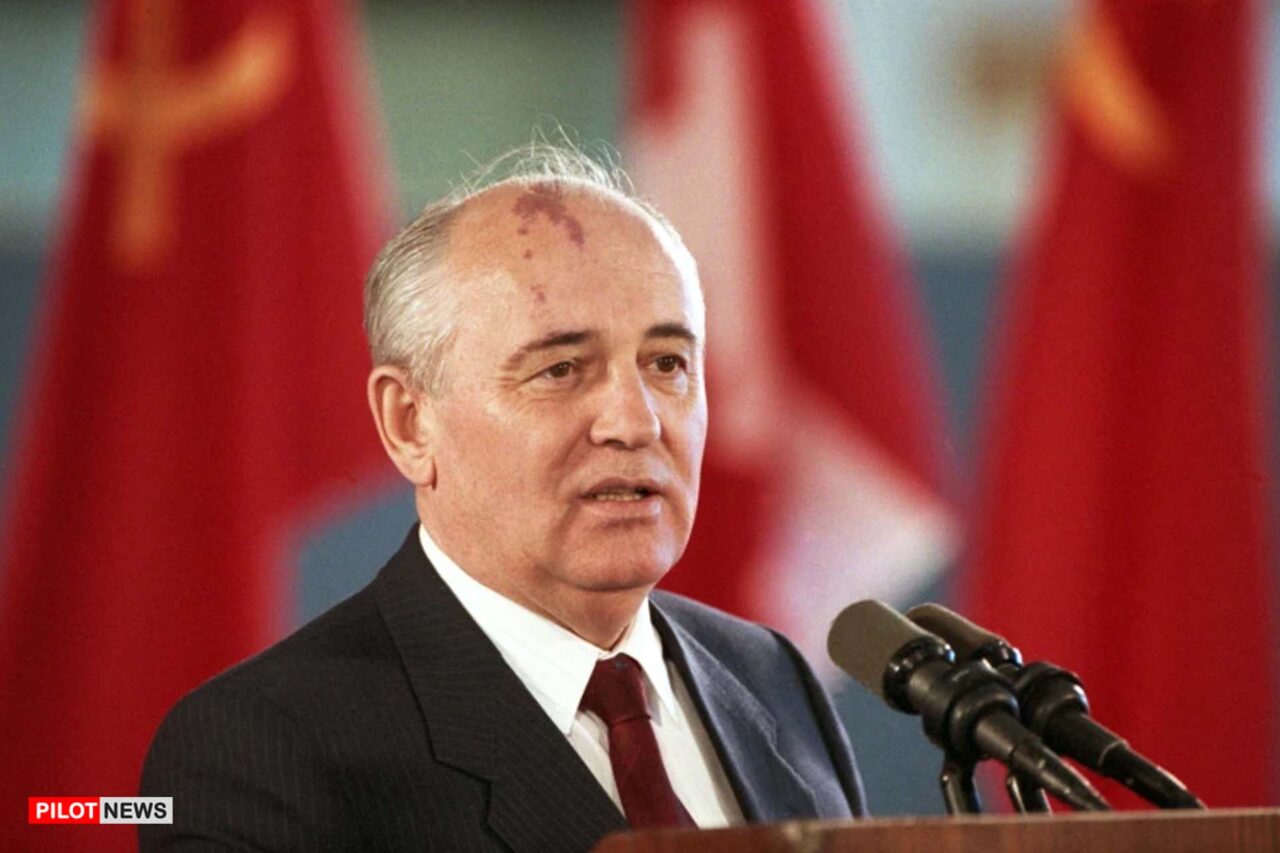The aftershock of the collapse of the Soviet empire reverberated from Cape Town to Cairo.

Mikhail Gorbachev, the late Soviet leader who passed on last week aged 91, is rightly remembered for his role in terminating the East-West Cold War, redrawing the map of Europe, and effectively shortening the calendar of the twentieth century. While historians may continue to nitpick whether Gorbachev singularly set the Soviet Union on the path to dismemberment or merely recognized the unsustainability of the status quo, it is beyond question that his bold initiatives triggered a chain of events whose ripples continue to be felt across Europe.
The impact of the Gorbachev revolution on the political process in Africa was no less momentous. For a proper appreciation, one only needs to consider the political landscape on the eve of Perestroika and Glasnost. For the nearly five decades that the Cold War lasted, the African region was a political theater in which East and West jostled for influence and supremacy, and everything that the United States and the defunct Soviet Union did was underpinned by this overarching strategic consideration. For both sides, political loyalty was an infinitely more precious currency than the nitty-gritty of how individual leaders ruled their respective countries.
In principle, African countries had the freedom of being politically equidistant from both poles. This, at any rate, was the raison d’être for the establishment of the Non-Aligned Movement (NAM) in 1961. Affirming the core principles of the Asia-Africa conference which held in Bandung, Indonesia, in 1955, the Movement explicitly abjured, inter alia, “the use of arrangements of collective defense to serve the particular interests of any of the big powers…”
Even so, broad sympathy for the Soviet Union, if not the Soviet bloc, was unmistakable. In the first place, the Soviet Union did not have to contend with the baggage of having been a colonial power in Africa, a label that key countries in the Western alliance struggled to throw off. If anything, being “the enemy of the enemy,” the Soviet Union could count on additional plaudits for its financial and logistical backing for nationalist and self-determination movements in various African countries, notably South Africa, Mozambique, Angola, and Guinea Bissau. The reluctance of a number of African countries to condemn Russia for its invasion of Ukraine is partly due to this.
More significantly, the emerging intelligentsia warmed to the socialist ideology, with many seeing it, rightly or wrongly, as the analogue of African “communalism” as they understood it. Thus, the Soviet Union enjoyed the double advantage of being both anti-colonial and purveying an ideological system that African intellectuals were taken with. Before Perestroika and Glasnost, a significant number of African countries were broadly “socialist” in their orientation, including Angola, Republic of Benin, Ethiopia, Tanzania, Mali, Guinea, Guinea Bissau, and Ghana. At the same time, such was the influence of socialism among the thinking classes that, at a particular moment in post-independence African history, to be an intellectual was to be socialist, or at least to have broadly socialist sympathies. In that era, debate among intellectuals typically boiled down to argumentation on the affirmations and pieties of socialism, the infallibility of which was widely taken for granted.
The Gorbachev revolution brought this era to an abrupt end. While it lasted, the Soviet empire could be invoked as proof of the feasibility of socialism as a “development model.” Insofar as the turn toward Perestroika and Glasnost in the Soviet Union was essentially an admission that the socialist experiment had failed, it left those African countries hitherto predicated on the socialist model with little by way of ideological defense. Suddenly orphaned, most were subsequently swept away in the tide of the Third Wave of democratization.
The intellectual impact was equally serious. The coming of Perestroika and Glasnost and the subsequent collapse of the socialist bloc left African intellectuals in a state of profound ideological bereavement. For the postcolonial African intelligentsia, Marxism was not just another ideology; it was, as I argue in my new book, “its very lifeblood, the cerebral core of its identity as a class, and the irreproachable lens through which it saw the world.” The collapse of the Soviet empire and the attendant eclipse of the socialist ideology triggered a crisis of identity from which the rump of the African intellectual elite has arguably not fully recovered.
There were other consequences. The collapse of socialism as an emancipatory ideology opened up a vacuum in the region and elsewhere which sundry religious systems and agents promptly occupied. One explanation for the upsurge of Pentecostal Christianity in Africa is the recession of socialism as a commanding ideological system and master narrative. In many respects, the modern African “believer” has merely traded Karl Marx for Jesus Christ.
The decline of socialism in Africa must not be overstated. For one thing, there remains residual sympathy, if not for statism tout court, but at least for some version of state-led development. This continues to be the case even among Africans who otherwise have no truck with socialism. For another, although the ascendant decolonial movement in African Studies is by no means reducible to it, there is no gainsaying that its anti-capitalist thrust derives from a misplaced sympathy with socialism.
Gorbachev may not have instigated the movement towards democracy in Africa, but, by discrediting socialism, the social forces which he unleashed at the global level expanded the space for political pluralism in the region.
African prodemocracy forces have a lot to thank him for.
Reina Patel assisted with the research for this article.
This publication is part of the Diamonstein-Spielvogel Project on the Future of Democracy.
- Anambra 2025 Governorship Election Might Be an Open Contest - April 24, 2024
- Anambra Assembly Passes Bill To Prohibit Secret Cults - April 24, 2024
- 2024 Aguata NBA Law Week: AG, Prof. Ifemeje Touts Landmarks and Expectations - April 19, 2024


